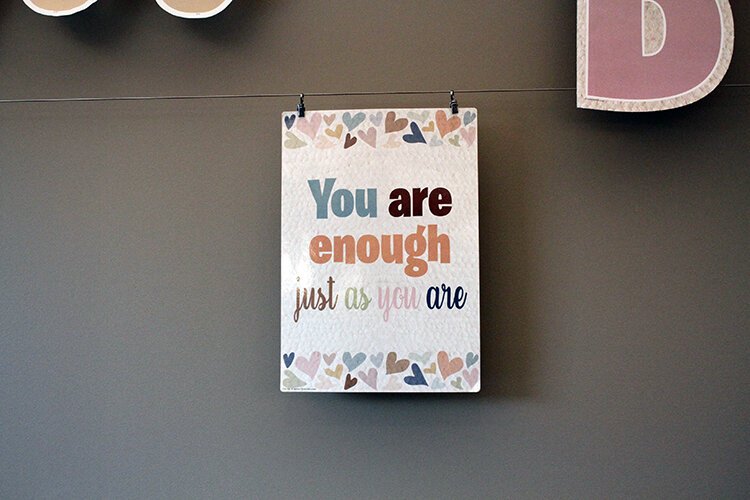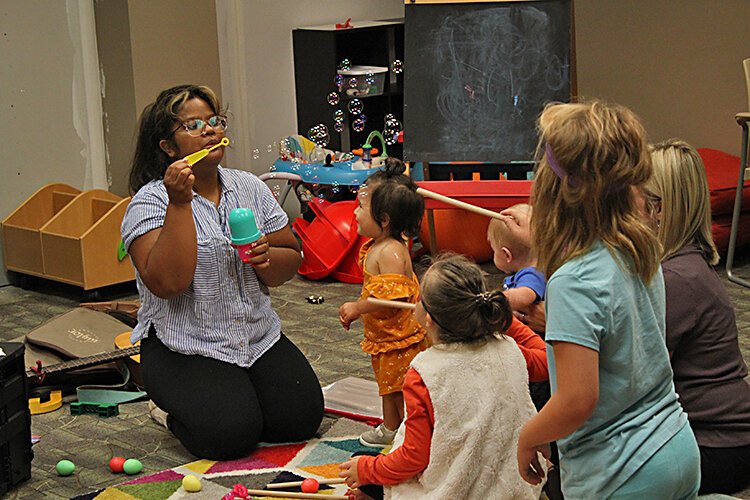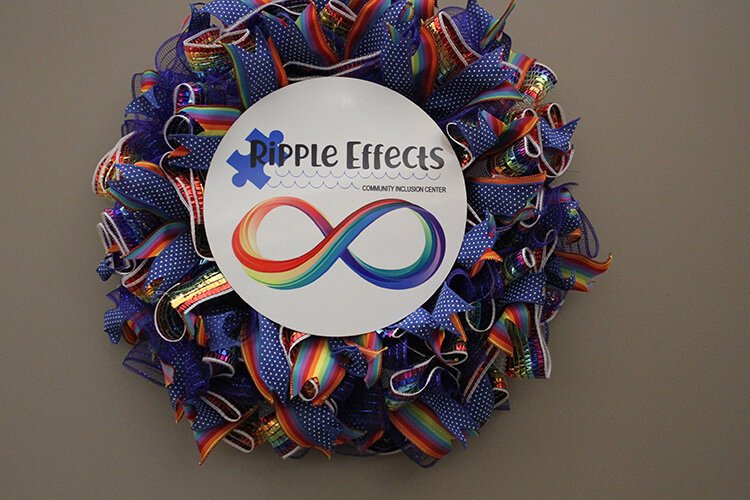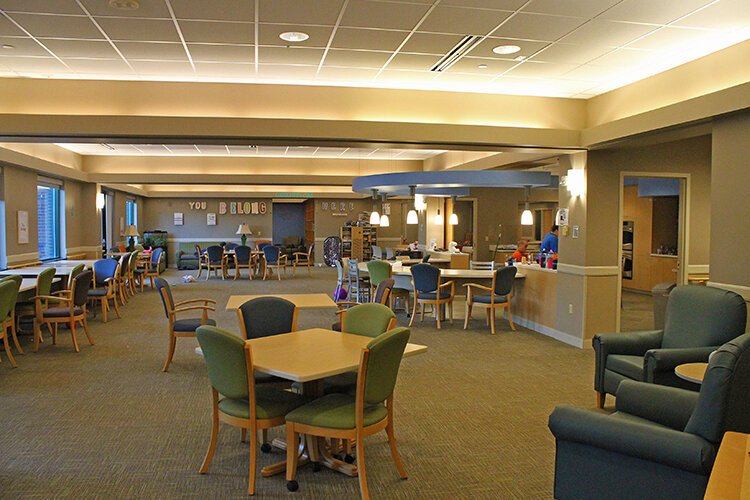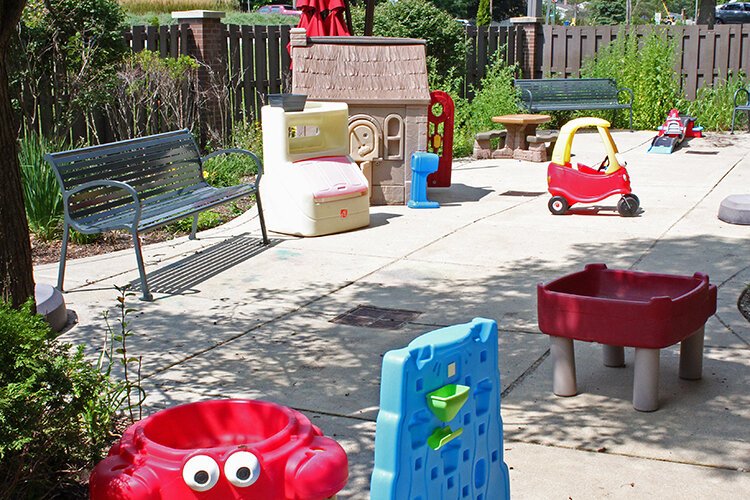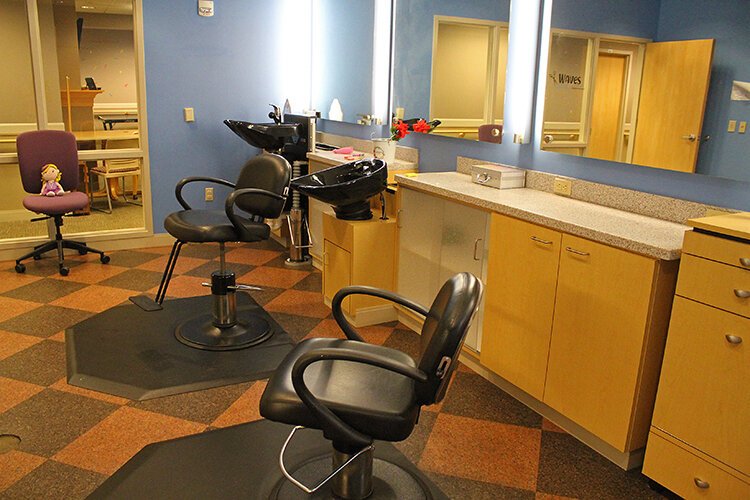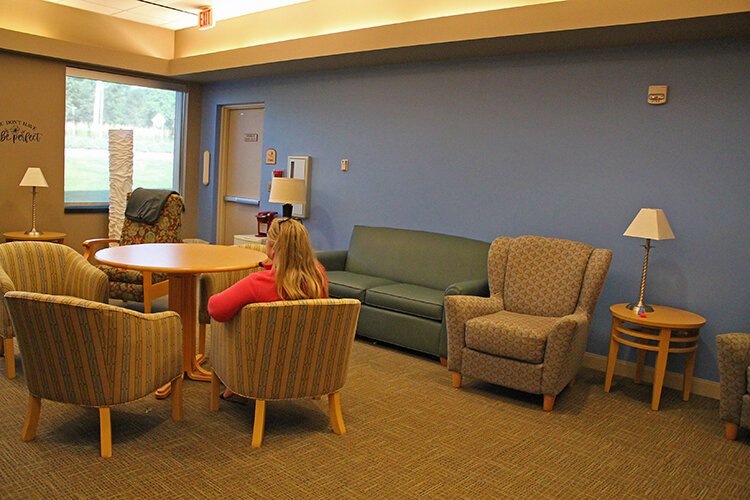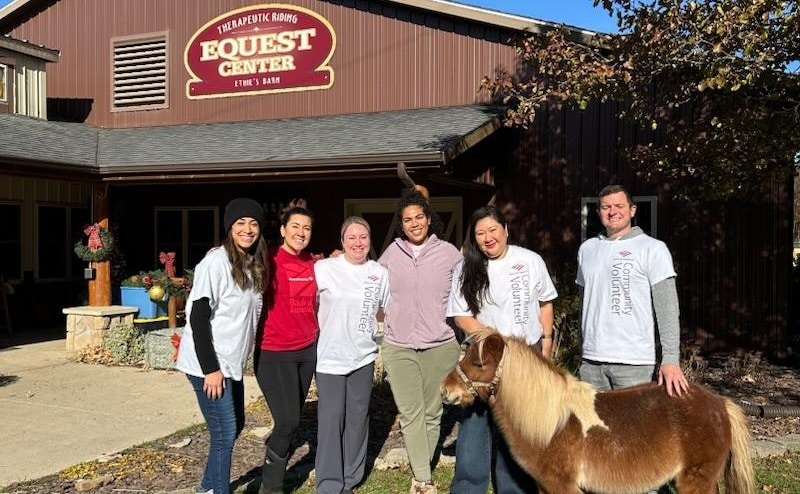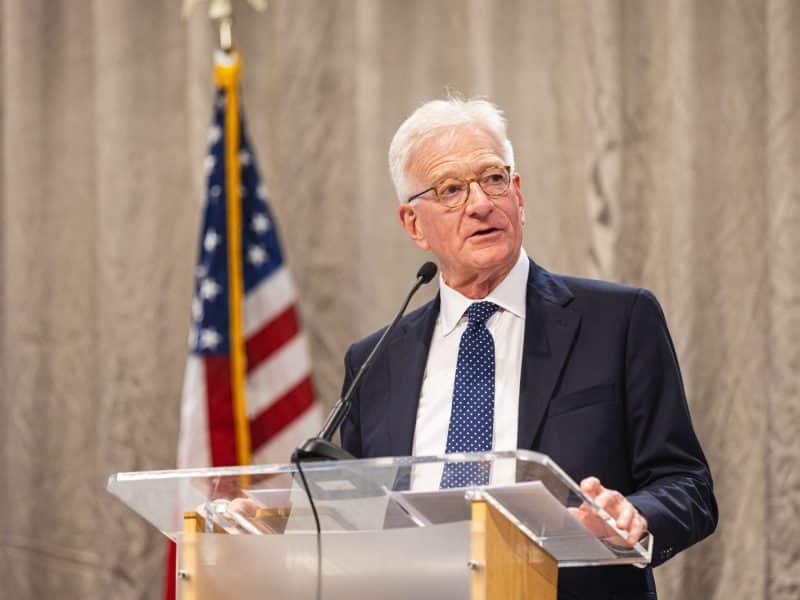New Community Inclusion Center in Portage creating Ripple Effects
"We don’t get to choose how other people parent because we don’t know their child or their child’s needs so really it’s a place where you be the family that you are and we want to encourage you, pat you on the back, let you know to keep going."
PORTAGE, MI — Children and adults who have autism, Down’s syndrome, complex trauma, or other issues that may impact their development, now have an inclusive and welcoming center for social clubs, learning opportunities, preschool, early intervention, and therapy.
Ripple Effects Community Inclusion Center, in Portage, is open to families, too, who seek a supportive community.
Lauren Cavalli, a Portage psychologist whose career has made her keenly aware of a lack of opportunity for those impacted by autism and other issues, says she wanted to do something to help fill the gap.
Last October Cavalli opened the Ripple Effects center at 2255 W. Centre Ave. in Portage. The nonprofit facility, which occupies the ground floor of a large building, now has almost 70 family memberships and serves more than 100 individuals.
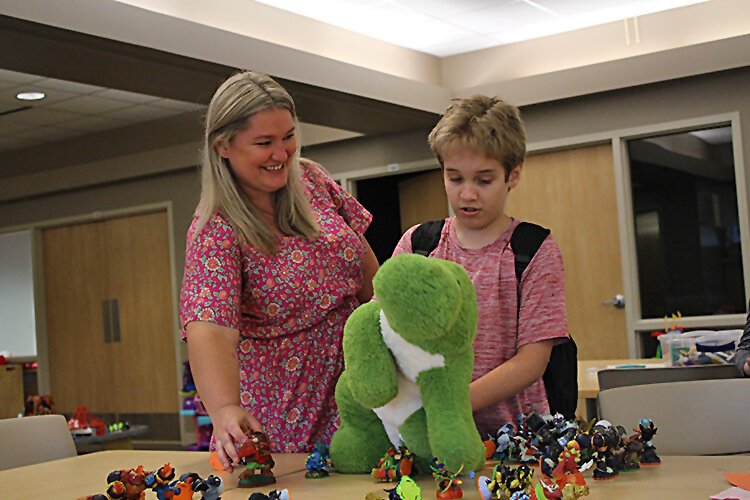
Founder Lauren Cavalli with Caleb Austin, 11
Cavalli, also the owner of the for-profit Ripple Effects Autism Learning Centers in South Haven, Centreville, Sturgis, and Coldwater, says she saw the need for more outreach and social opportunities. She explains the genesis of the center in Portage:
“I wanted to have a fully licensed preschool that was inclusive to anyone with any special needs and any behavior challenges, and also a little autism center where we do early-intervention, applied-behavior-analysis therapy for children.”
Originally, Cavalli was seeking a 4,000-square-foot site, but, as chance would have it, a realtor urged her to check out a former day-care center for adults with dementia that was 15,000 square feet. And after Cavalli saw it, the potential for increasing services blossomed.
“And when I came in and saw the facility — the beautiful kitchen and all of the unique features. Every bathroom is wheelchair accessible; there are railings on the walls to help anyone with mobility challenges — special features like that.
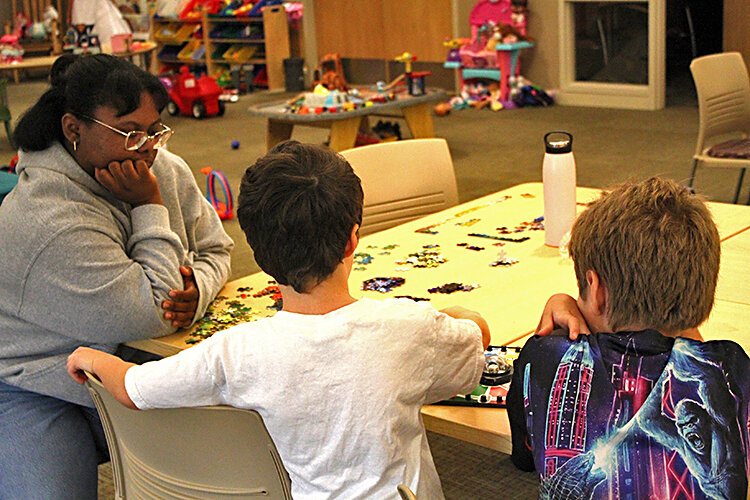
Boys play while a staff member supervises.
“I knew if I didn’t take a leap of faith and take the features of this building and give it to the community, someone else would come in and all of the unique features would be removed.
“Families with children with autism can feel isolated and families with kids with differences don’t feel welcome in a lot of different places in the community. Therefore they’re isolated; they don’t leave their homes and they don’t have a support system.”
Inclusion for families, too
“There’s a large group of special-needs parents in the community who have rallied together to spread awareness for spaces in the community that are welcoming to their families,” says Cavalli. “I’ve been following this group of parents who really wanted something from me in our community that’s for them.”

Children enjoy this outdoor play area.
One such parent is Portage resident Debbie Netz, mother of 12-year-old Aliya Netz. “She wasn’t fitting in at school, she was different. It was very difficult for her to make friends,” Debbie Netz says.
Ripple Effects had an open house shortly after it began operating.
“Aliya and I went to check it out,” Netz says. “Aliya quickly bonded when we got there with two other girls she never met before. By the end of the night, they were best buddies. It was like an instantaneous, ‘Hey! We get each other.’
“Then we attended some clubs at the center — cooking club, beauty club — so she had girls to do things with, which was wonderful. And through that, I also had parents that I could talk to and they and I ‘got’ each other and had commonality.”
Open to everyone
Ripple Effects serves children and adults with autism, Down syndrome, complex trauma, dwarfism, physical disabilities, communication impediments, and other conditions, as well as family members.
“We’re really open to welcoming everybody with any condition or no condition at all,” Cavalli says. “We all are here just to be kind to each other and accepting.”
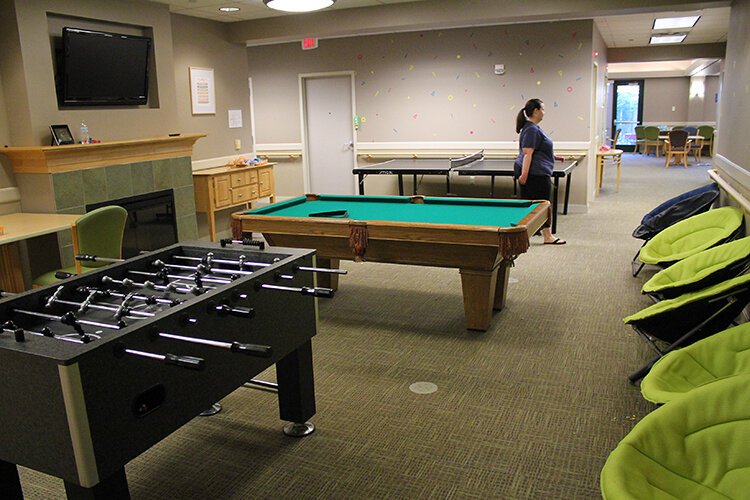
A game room where people can take breaks
The center’s special features include the fact that practically everything can be touched by hand. “We don’t worry about anything breaking,” Cavalli says. “If a child has a meltdown, it’s okay. We do know that your child has their own unique needs and when it comes to parenting, only the parent knows that child best and knows how to respond in that moment.
“Their child’s behavior might be unpredictable but you know what your child needs and you provide that to them. There’s no judgment. There’s no ‘I can’t believe that mom did that or responded that way.’
“We don’t get to choose how other people parent because we don’t know their child or their child’s needs so really it’s a place where you be the family that you are and we want to encourage you, pat you on the back, let you know to keep going. It’s okay and we all understand; we’ve all been there before.”
The center has many accommodations for its clients. Cavalli says, “We might have participants who become overstimulated if the environment gets too loud and we make sure we have ear muffs or headphones available for them to wear.
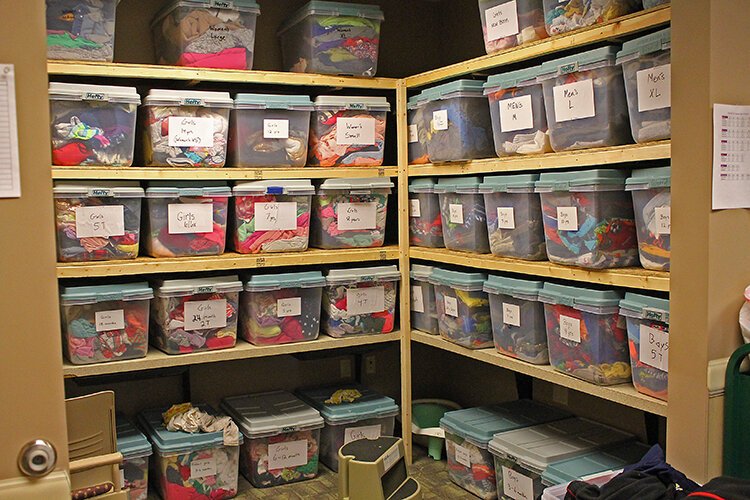
This is the center’s Foster Closet with donated clothing sorted by sizes for children and adults. It was created for children in foster care but is available for anyone in need of clothes.
“And we might have individuals who really like to build things and want to socialize with other people in a group where they’re building things but they haven’t yet developed the fine motor skills to be able to build with Lego so we have larger blocks, we have magnet tiles, we have Velcro blocks, we have life-size blocks that can be used for building a fort. We’re really able to take anyone’s special interest and make it accessible for anyone,” Cavalli says.
“You don’t have to have any special need to participate in any of our activities. In fact, we love it when people who don’t have special needs want to come and be with us. We can’t be inclusive if everyone isn’t represented.”

The salon accommodates children with special requirements for haircuts.
A unique service of Ripple Effects is its part-time hair salon. A staffer comments, “It provides a specialized hair-cutting experience for individuals with diverse needs. This salon is designed to serve people with developmental, emotional, and sensory challenges, ensuring that the process is calm, comfortable, and tailored to their unique needs. The key goal is to offer restraint-free and tear-free haircuts without fear or discomfort. This program is a source of relief for parents who have struggled to find supportive environments for their children’s haircuts.”
Opportunities to develop friendships
The center emphasizes developing friendships among participants and their families. “We have social-skills clubs–building blocks club, beauty club, arts and crafts club, video games club, cooking club — where we have participants who have a special interest and want to make new friends or want to learn how to make new friends or how to socialize or how to make and keep friends,” Cavalli says.
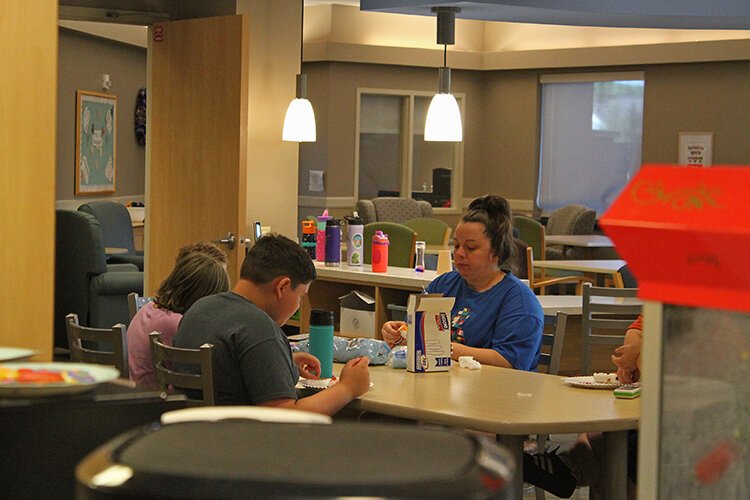
Children enjoy a dessert they helped make.
“So we’re able to have social-skills groups that are unique and are activity-based. We can provide accommodations during the activities so that everyone can participate fully. And we have social-skills coaches that are able to facilitate communication between the participants and provide some lessons.”
Friendship among caregivers also is promoted. There’s a quiet and comfortable corner room called Caregiver’s Cove. Debbie Netz says, “That’s the room where the parents can just gather and hang out while the kids are doing their own thing. The parents can sit and talk and I’ve done that before and we can vent with each other or we can just sit and listen because we ‘get it.’ We understand what each other is going through.”
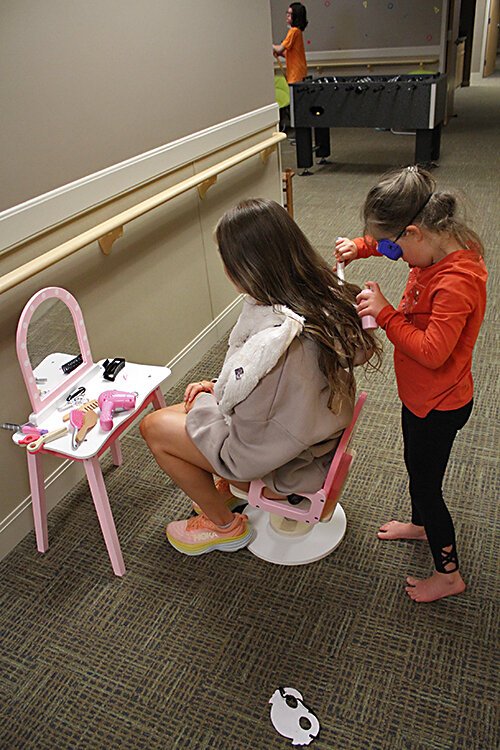
A girl pretends to be a hairdresser with a staff member.
The center also has free monthly Family Fun Nights lasting about two hours on a Friday or Saturday when children and adults all get together.
A family membership costs $30 a year. That’s essentially for access to the center; there are fees for activities like day camp and for some clubs.
“We are seeking continuous funding from grants in the community and partnerships,” Cavalli says. “So if there’s anyone who is interested in making a donation to our nonprofit in order for us to continue to provide these very valuable resources in the community, we would appreciate it. And we welcome other community agencies and resources reaching out to us for partnership if it’s something that aligns with their mission.”
Cavalli has bachelor’s and master’s degrees in psychology. Her master’s degree studies emphasized applied behavior analysis, autism, and organizational behavior management. For personal enjoyment, she plays harp. “I minored in music and took harp lessons in college,” she says about her undergraduate years. She also has four children, three of whom were adopted from foster care.
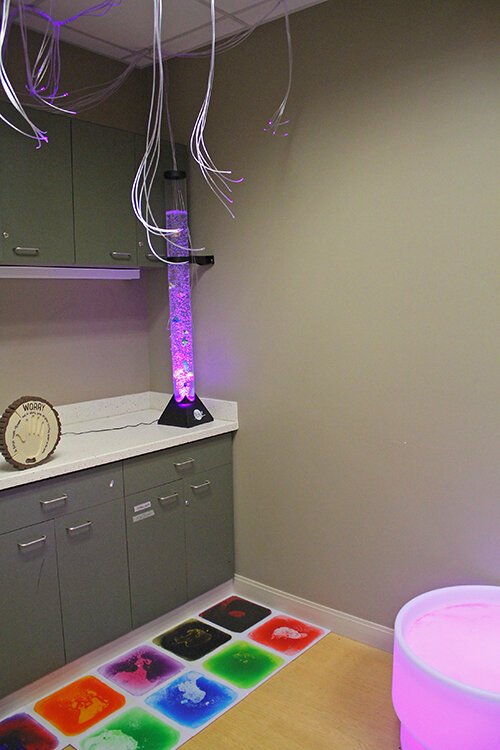
A corner of the sensory room, is described as a sanctuary of serenity and sensory stimulation.
About the center’s progress in its 11 months of existence, Cavalli says, “It’s really cool to see the families building trust with us, learning about what we can offer their family and the supportive environment that’s here and the connections the families are making with each other.
“People comment on the feeling you get when you walk in. Parents have mentioned that it’s warm, it’s inviting, it’s comfortable. People are happy to be here.”
